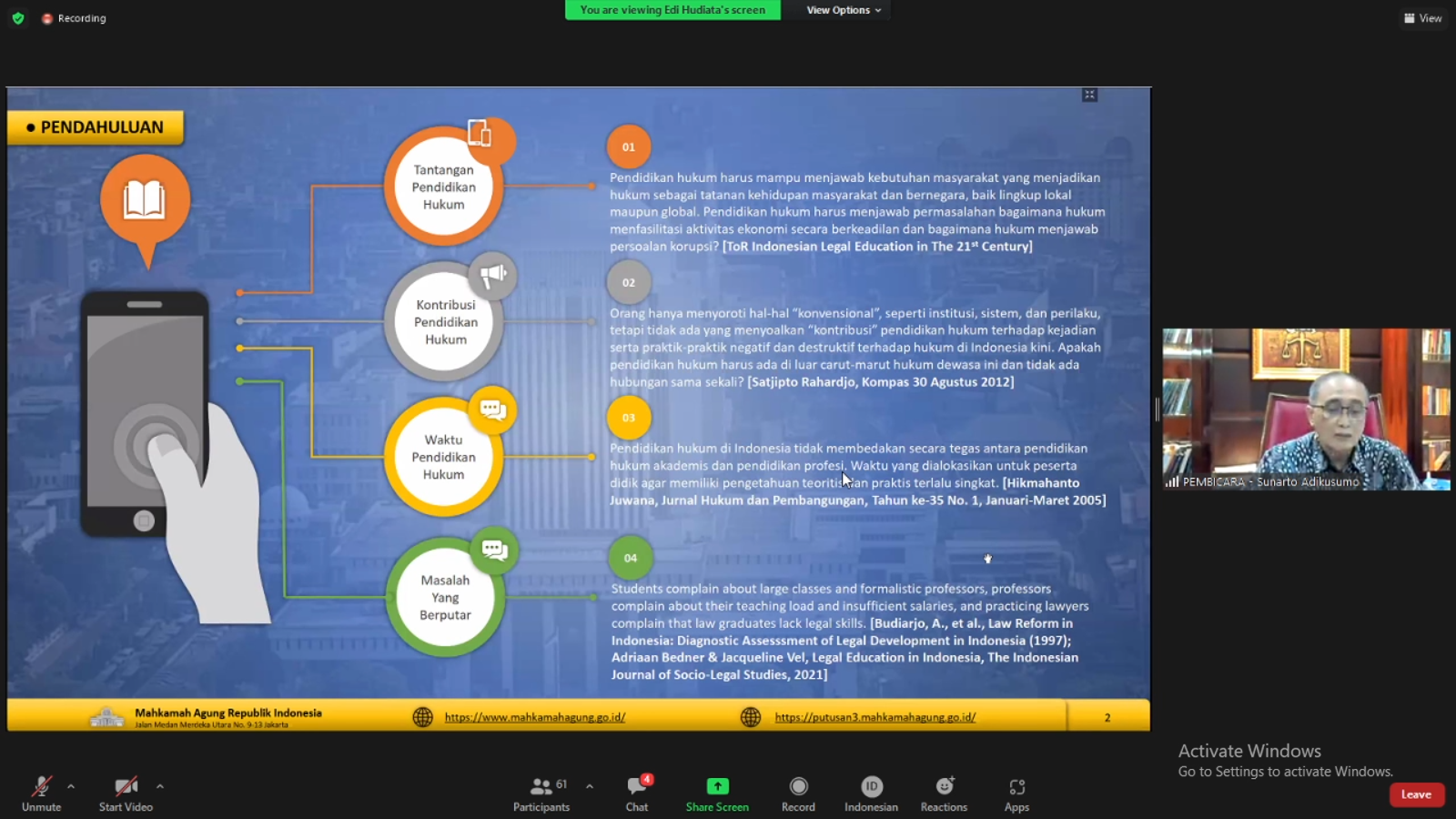UNAIR NEWS – Legal studies is an applied science that requires legal scholars not only to master the law theoretically but also to be skilled in dealing with concrete cases later.
The lack of experience in handling legal cases makes most law graduates less skilled in dealing with real legal cases. Dr. H. Sunarto, S.H., M.H., the Deputy Chief Justice of the Supreme Court (MA) for Non Judicial Affairs, explained this in the LEAP-OKP FH UNAIR legal education seminar on Tuesday, January 18, 2022. Dr. Sunarto was presented to speak on “legal cases in Indonesian legal education.”
Dr. Sunarto revealed, during recruitment, the Supreme Court has to provide a series of training processes to improve the skills of the Supreme Court apparatus. He advised that law graduates should always seek experience in order to improve their skills in the field of law.
“Therefore, law graduates must be rich in experience so that they are able to apply the theory learned in lectures into real cases as law enforcers later,” he said.
Dr. Sunarto explained that one way to improve the skills of legal academics is to annotate court decisions. He added, an annotation of judgment is a record that aims to explain, comment on, or criticize a legal decision.
“Through the annotation of judgment, legal scholars can learn how to read and analyze the Supreme Court’s decision, from the formulation of the chamber to the legal sources used both formally and materially,” he explained.
Furthermore, Dr. Sunarto revealed that things need to be underlined in annotating the judgment. Annotating a court decision is allowed when the decision has permanent legal force (BHT) through a series of formal and material legal processes. This is done to prevent the occurrence of legal antinomy.
“In addition, the decision must be reviewed using formal legal methods to carry out evidence and material law used in the legal discovery method,” he said.
Continuing his presentation, Dr. Sunarto revealed that currently, the Supreme Court has provided a collection of court decisions that can be accessed by everyone on the Supreme Court’s decision directory webpage. There is also information on the formulation of the chamber, jurisprudence, landmark decisions and statutory regulations of a case.
“Students can use it as material for analysis and study to annotate legal decisions,” he added.
In addition, he continued, to encourage students to analyze legal decisions, the Supreme Court holds a legal investigation and decision analysis competition where all law school students can participate.
At the end of the seminar, Dr. Sunarto hoped that law higher education in the future will not only facilitate legal learning theoretically, but also provide experience for students to deal with a real case through the learning methods used.
“Therefore, Indonesian legal education is able to produce apparatus candidates with strategic positions in the judiciary and the Supreme Court who are not only qualified but also integrated,” he concluded. (*)
Author: Ivan Syahrial Abidin
Editor : Khefti Al Mawalia





